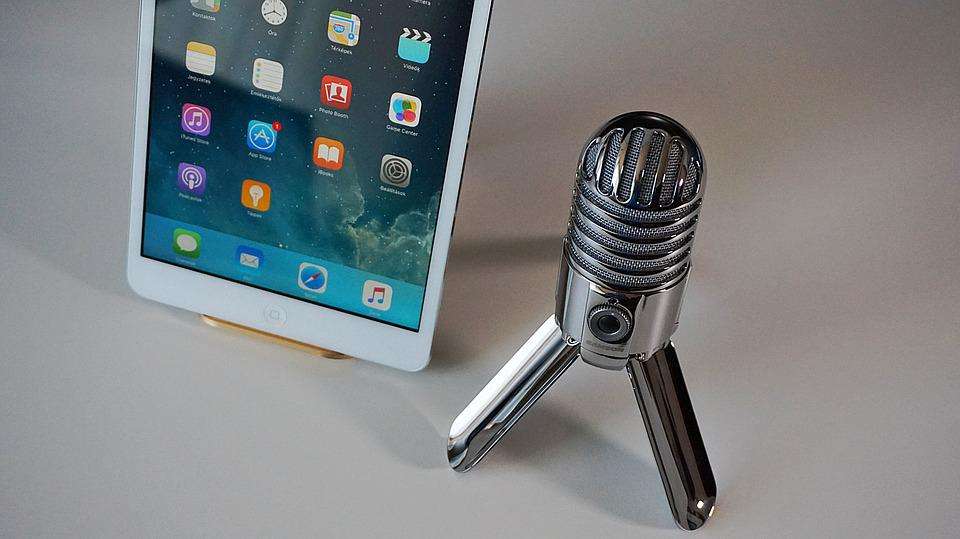
Why History Podcasts Are Booming Now
Why history podcasts are booming now? It’s not just about convenient listening; it’s a perfect storm of accessibility, engaging storytelling, and a growing appetite for in-depth, easily digestible information. We’re living in a world saturated with information, and podcasts offer a unique escape – a chance to delve into captivating narratives, explore niche historical interests, and connect with expert voices in a way traditional media often can’t match.
This isn’t just a trend; it’s a revolution in how we consume and understand the past.
The rise of on-demand audio, coupled with the diverse range of historical topics covered, has created a vibrant ecosystem. From detailed accounts of ancient civilizations to insightful analyses of modern conflicts, history podcasts cater to every imaginable interest. The convenience of listening during commutes, chores, or workouts makes learning about history surprisingly effortless. And the intimate nature of the audio format, often featuring personal anecdotes and expert interviews, creates a powerful connection between listener and subject matter.
Accessibility and Convenience
The explosive growth of history podcasts isn’t just about the fascinating content; it’s also significantly driven by their unparalleled accessibility and convenience. Unlike traditional media, podcasts offer a level of flexibility and ease of consumption that perfectly suits the demands of modern life. This on-demand nature, combined with widespread platform availability, has made history readily available to a vastly expanded audience.The on-demand nature of podcasts is a key factor in their popularity.
Listeners can access episodes anytime, anywhere, at their own pace. This contrasts sharply with scheduled broadcasts of radio shows or television programs, which require viewers to adhere to rigid schedules. This flexibility allows individuals to incorporate history into their daily routines without disrupting their lives. Whether it’s a quick 15-minute episode during a lunch break or a longer deep dive during a weekend chore session, the choice is entirely in the listener’s hands.
Podcast Access Across Platforms and Devices
Podcasts are easily accessible through a wide variety of platforms and devices. Major players like Apple Podcasts, Spotify, Google Podcasts, and Stitcher offer extensive libraries and user-friendly interfaces. This broad reach means that regardless of a listener’s preferred technology or operating system, accessing history podcasts is usually a straightforward process. Furthermore, many podcast apps allow for offline downloads, eliminating the need for an internet connection during listening, making them ideal for commutes or travel.
This seamless integration into various devices makes engaging with history effortless and convenient.
Podcast Listening Compared to Other Media
Listening to history podcasts offers a distinct advantage over other forms of media consumption, especially in terms of convenience during multitasking. While reading requires dedicated attention and a stationary position, and watching TV necessitates a screen and often a dedicated viewing space, listening to podcasts allows for simultaneous engagement in other activities. This makes them particularly well-suited for commutes, housework, exercise, or any activity that doesn’t demand full visual attention.
| Media Type | Accessibility | Convenience (Multitasking) | Location Flexibility |
|---|---|---|---|
| Podcast | High (various platforms, offline downloads) | High (can be listened to while doing other activities) | High (can be listened to anywhere) |
| Reading (books, articles) | Medium (requires physical book or device) | Low (requires focused attention) | Medium (requires a relatively stationary location) |
| Watching TV | Medium (requires a TV and potentially a subscription) | Low (requires focused attention and a specific location) | Low (requires a dedicated viewing space) |
Diverse Content and Niche Appeal

The explosion in popularity of history podcasts isn’t just due to their accessibility; it’s also a testament to the incredibly diverse range of historical topics they cover and their ability to cater to highly specific interests. This niche appeal is a key driver of their success, offering listeners a level of personalization and depth unavailable through traditional media.The sheer breadth of historical subjects tackled by podcasts is astonishing.
From ancient civilizations and medieval warfare to the intricacies of 20th-century politics and the social movements shaping our present, virtually every period and aspect of human history has found its voice in podcast format. This vastness allows listeners to explore areas of particular interest with a level of detail and engagement that’s hard to replicate elsewhere. Furthermore, the podcast format lends itself to storytelling in a way that traditional historical texts often cannot.
History podcasts are exploding in popularity because they offer accessible, engaging narratives about the past. Understanding our present often requires understanding our past, and that’s why resources like how it works what to watch why it matters america votes are so crucial for contextualizing current events. Ultimately, the surge in historical podcast listening reflects a growing desire to learn and connect with the past to better navigate the complexities of today.
Niche Historical Interests and Audience Segments
Podcasts excel at serving highly specific historical interests, creating vibrant communities around shared passions. This targeted approach allows for a deeper dive into less mainstream historical narratives, attracting listeners who might not find their interests adequately addressed in broader historical media. For example, podcasts dedicated to the history of specific regions, like the American South or Victorian England, can cultivate a loyal following of listeners fascinated by those particular eras and cultures.
Similarly, podcasts focusing on specialized topics, such as the history of medicine, fashion, or specific historical events, attract dedicated audiences eager to explore these often-overlooked aspects of the past. The intimate, conversational nature of podcasts fosters a sense of community among listeners, further enhancing their appeal.
Examples of Successful Niche History Podcasts
Many podcasts have achieved remarkable success by focusing on highly specific niches. For instance, a podcast dedicated to the history of espionage might attract listeners interested in intrigue and international relations. The detailed accounts, interviews with experts, and carefully crafted narratives draw listeners into a world often only hinted at in more general historical accounts. Another example could be a podcast exploring the social history of a specific city, delving into its unique cultural development and the lives of its inhabitants.
This level of detail and focused perspective resonates strongly with listeners who have a personal connection to the location or a deep interest in urban history. The success of these niche podcasts demonstrates the power of catering to specialized interests within the larger history enthusiast community.
The Appeal of Personalized and Curated Historical Narratives
The success of history podcasts is also linked to their ability to provide personalized and curated historical narratives. Unlike textbooks or documentaries that present a generalized overview, podcasts often offer a more intimate and engaging approach. They can incorporate personal anecdotes, interviews with descendants of historical figures, or use creative sound design to immerse the listener in the historical context.
This personalized touch makes the past feel more accessible and relatable, fostering a stronger connection between the listener and the historical subject matter. Furthermore, many history podcasts are curated by passionate individuals who share their own insights and interpretations, adding another layer of engagement and personalization. This creates a more intimate and engaging listening experience than more generalized historical accounts.
Engaging Storytelling and Narrative Formats: Why History Podcasts Are Booming Now
The resurgence of history podcasts isn’t just about accessibility; it’s about the power of captivating storytelling. Listeners aren’t passively absorbing facts; they’re actively participating in a narrative, transported to different times and places, empathizing with historical figures, and grappling with complex events. The effective use of narrative techniques is crucial to the success of these podcasts, transforming dry historical data into compelling audio experiences.History podcasts leverage the inherent strengths of the audio medium to make the past come alive.
Unlike textbooks or documentaries, podcasts can utilize a range of narrative formats to engage listeners on multiple levels. This multi-faceted approach, combining different techniques, allows for a richer and more memorable learning experience.
Narrative Formats in History Podcasts
Different narrative formats cater to various listening preferences and historical subjects. Interviews with historians provide expert analysis and diverse perspectives, offering a sense of immediacy and direct engagement. Dramatizations, on the other hand, immerse listeners in historical events through recreated scenes and dialogue, bringing characters and settings to life in a vivid and engaging manner. Documentaries often blend these approaches, weaving together interviews, archival audio, and narration to create a comprehensive and nuanced picture of the past.
History podcasts are exploding in popularity because they offer easily digestible narratives, perfect for our busy lives. This fascination with the past even extends to our technological present; consider the recent advancements in space debris mitigation, like the innovative techniques described in this article about how particles that damage satellites can be flushed out of orbit.
Understanding our past helps us appreciate the complex challenges – and potential solutions – of our future, fueling the continued growth of history podcasts.
Each format offers unique advantages, contributing to the overall appeal and accessibility of history podcasts. For example, the podcast “The History of Rome” uses a primarily narrative approach, while “Stuff You Missed in History Class” relies heavily on a conversational, interview-style format. The choice of format often depends on the subject matter and the podcast’s overall style.
Storytelling Techniques for Enhanced Listener Engagement
Effective storytelling techniques significantly enhance listener engagement and knowledge retention. By employing these techniques, podcast creators transform historical information into compelling narratives that resonate with audiences long after the episode ends. This includes using techniques such as building suspense, creating relatable characters, and incorporating vivid descriptions that paint a picture in the listener’s mind.
- Suspense and cliffhangers: Leaving listeners wanting more at the end of an episode or segment encourages continued listening.
- Character-driven narratives: Focusing on the lives and experiences of historical figures allows listeners to connect with the past on a personal level. The podcast “American Scandal” expertly utilizes this technique.
- Vivid imagery and sensory details: Using descriptive language that appeals to the listener’s senses creates a more immersive and memorable experience. This might involve describing sounds, smells, and sights of a particular historical setting.
- Use of music and sound effects: Strategic use of sound design can significantly enhance the emotional impact and atmosphere of a podcast episode, adding layers of depth and texture to the narrative.
- Pacing and rhythm: Varying the pace of narration and incorporating pauses can maintain listener interest and create dramatic tension.
- Personal anecdotes and relatable stories: Connecting historical events to contemporary issues or personal experiences can make the past feel more relevant and engaging.
Expert Voices and Personal Connections

The booming popularity of history podcasts isn’t just about accessibility; it’s also about the compelling voices and narratives that bring the past to life. Listeners crave authenticity, and hearing directly from experts and individuals with personal connections to historical events provides a depth and richness that traditional textbooks often lack. This intimate connection fosters a deeper understanding and appreciation of history, transforming it from a dry recitation of facts into a vibrant, engaging experience.The appeal of hearing directly from historians and experts is undeniable.
History podcasts are booming because they offer engaging narratives and accessible learning. It’s fascinating how our fascination with the past mirrors the challenges of integrating new technologies; much like understanding historical context, successfully onboarding AI requires careful planning and a deep understanding of its implications, as highlighted in this insightful article on why companies are struggling to onboard ai.
Ultimately, both historical exploration and AI adoption require a willingness to learn and adapt to navigate complex systems, making both incredibly popular right now.
Their specialized knowledge and insightful interpretations provide context and nuance that enrich the listening experience. These individuals can unravel complex historical events, challenge conventional wisdom, and offer fresh perspectives, all while maintaining academic rigor. This expertise lends credibility and authority to the podcast, assuring listeners that the information presented is well-researched and thoughtfully considered. Furthermore, the conversational format of many podcasts allows for a more approachable engagement with complex topics, making them accessible to a wider audience.
Examples of Podcasts Featuring Prominent Historians or Historical Figures
Many successful history podcasts leverage the expertise of renowned historians. For example, “The History of England” by Dan Snow features the historian’s own engaging narration and analysis, interweaving his personal insights with a comprehensive overview of English history. Similarly, podcasts like “BackStory” showcase interviews with leading historians on a wide range of topics, providing multiple perspectives and fostering lively discussions.
While not always featuring interviews with living historians, podcasts like “Dan Carlin’s Hardcore History” often incorporate extensive research and detailed accounts from primary sources, effectively giving voice to the past through meticulous scholarship. These examples demonstrate the power of expert voices in shaping a compelling and informative historical narrative.
Personal Narratives and Anecdotes in History Podcasts
The inclusion of personal narratives and anecdotes significantly enhances the listener’s connection to the past. By weaving personal stories into the historical context, podcasts create an emotional resonance that transcends mere facts and figures. For instance, a podcast about World War II might incorporate letters from soldiers, diaries from civilians, or oral histories from veterans. These personal accounts humanize history, allowing listeners to connect with the individuals who lived through these events and understand their experiences on a deeper level.
The immediacy and emotional weight of these personal narratives make the historical events more relatable and memorable, fostering a stronger emotional investment in the subject matter.
Comparison of Expert Interviews versus Personal Accounts in History Podcasts
| Feature | Expert Interviews | Personal Accounts |
|---|---|---|
| Focus | Analysis, interpretation, broad overview | Individual experience, specific events, emotional impact |
| Source of Information | Scholarly research, primary sources, expert knowledge | Personal memories, diaries, letters, oral histories |
| Style | Often formal, structured, analytical | More informal, conversational, emotionally charged |
| Examples | “BackStory,” “The History of England” | Podcasts featuring oral histories of veterans, survivor accounts of historical events |
The Impact of Social Media and Community Building
The rise of history podcasts isn’t just about compelling narratives and expert voices; it’s also intrinsically linked to the power of social media and the vibrant communities they foster. These platforms have become crucial distribution channels, discussion hubs, and feedback loops, significantly impacting the production and consumption of historical audio content. The interactive nature of these online spaces has fundamentally reshaped the relationship between podcast creators and their listeners.Social media platforms like Twitter, Facebook, Instagram, and TikTok act as powerful marketing and distribution tools for history podcasts.
Podcasts can be easily promoted through targeted advertising, engaging posts with snippets of audio or visually appealing graphics, and interactive Q&A sessions with podcast hosts. The shareability of podcast links and episodes on these platforms exponentially expands reach, introducing the content to new audiences organically. Furthermore, many podcasters leverage the visual storytelling potential of platforms like Instagram to complement their audio content, creating visually engaging posts that link back to their podcast episodes.
Social Media’s Role in Podcast Promotion and Distribution, Why history podcasts are booming now
Social media’s influence extends beyond simple promotion. The algorithms of these platforms often surface relevant content to users based on their interests, leading to serendipitous discoveries of history podcasts. This organic reach complements targeted advertising efforts, creating a multifaceted approach to audience acquisition. Moreover, many podcasters actively engage with their audience on social media, answering questions, responding to comments, and fostering a sense of community around their work.
This interaction builds loyalty and encourages listeners to become active promoters of the podcast themselves. For instance, a history podcast focusing on World War II might utilize Instagram reels showcasing captivating images and short audio clips, driving traffic to their full episodes on platforms like Spotify or Apple Podcasts.
Online Communities and Forums: Fostering Historical Discussions
Beyond individual social media posts, dedicated online communities and forums play a vital role in fostering deeper engagement with history podcasts. These spaces, often hosted on platforms like Reddit, Discord, or even Facebook groups, allow listeners to connect with each other, discuss episodes, share interpretations, and delve into further research on the topics covered. The collective intelligence and diverse perspectives within these communities enrich the listening experience and contribute to a more comprehensive understanding of historical events.
The dynamic exchange of ideas and opinions transforms passive listening into active participation, fostering a sense of intellectual camaraderie among listeners. This fosters a collaborative learning environment that goes beyond the confines of a single podcast episode.
Listener Interaction and Feedback: Shaping Podcast Development
Listener interaction and feedback are invaluable to podcast development. Reviews, comments, and direct messages provide creators with insights into what resonates with their audience and areas for improvement. This direct line of communication allows podcasters to adapt their content, refine their storytelling techniques, and ensure their work remains engaging and relevant. Constructive criticism and positive feedback alike contribute to the iterative process of podcast creation, allowing for continuous growth and improvement.
For example, a history podcast might receive feedback suggesting a deeper exploration of a particular historical figure, leading to the creation of a dedicated episode or a series on that topic.
A Thriving Online Community: A Descriptive Illustration
Imagine a vibrant online forum dedicated to a history podcast about the Roman Empire. The forum’s homepage features a stylized image of the Colosseum, bathed in the warm glow of a setting sun. The main discussion board is organized chronologically, with threads dedicated to each episode, filled with lively comments and insightful analyses. Users have created custom avatars depicting Roman gods or legionaries.
Smaller sub-forums exist for specific topics like Roman military tactics, daily life in Pompeii, or the lives of famous emperors. Animated GIFs of Roman battles and memes referencing popular historical figures punctuate the discussions. The atmosphere is one of enthusiastic collaboration and intellectual curiosity, with members regularly sharing links to relevant articles, books, and documentaries, creating a dynamic and engaging learning environment.
Regular events, such as virtual “lectures” hosted by the podcast creator or online quizzes testing knowledge of Roman history, further cement the community’s cohesiveness and activity. The entire space feels like a digital version of a lively academic society, where passion for history fuels a rich exchange of ideas and perspectives.
The Rise of Audio Consumption

The explosion in popularity of history podcasts isn’t happening in a vacuum; it’s part of a broader trend towards increased audio consumption across the board. Our increasingly mobile lives, coupled with advancements in technology, have created a perfect storm for audio’s resurgence as a primary form of entertainment and information gathering. This shift impacts not just how we listen to music, but also how we learn, relax, and engage with the world around us.The convenience and accessibility of audio are undeniable factors driving this growth.
Unlike video, which requires visual focus and often a stationary position, audio allows multitasking. We can listen while commuting, exercising, cleaning, or even doing chores, making it a highly efficient way to consume content. This efficiency contributes significantly to the rise of audio’s popularity, particularly among busy individuals.
Audio Consumption Compared to Other Forms of Entertainment
Podcast listening occupies a unique space in the audio entertainment landscape, distinct from music streaming and audiobooks. Music streaming services, while offering vast libraries, primarily cater to entertainment and mood setting. Audiobooks, on the other hand, focus on narrative fiction and non-fiction, often requiring sustained attention. Podcasts, however, offer a diverse range of formats, from in-depth documentaries to casual conversations, allowing for a wider variety of listening experiences and engagement levels.
This flexibility is a key reason for their appeal. They bridge the gap between entertainment and education, making complex topics more accessible.
Advantages of Audio for Consuming Historical Information
Audio presents several advantages for learning about history. The human voice lends itself to storytelling, creating a more intimate and engaging experience than reading a textbook. The ability to incorporate sound effects, music, and interviews adds another layer of immersion, making historical events feel more tangible and relatable. Furthermore, the passive nature of listening allows for a different kind of engagement; it doesn’t require the same level of concentration as reading, allowing for a more relaxed and receptive learning environment.
This accessibility is crucial for making history more appealing to a broader audience.
Visual Representation of Audio Consumption Growth
Imagine a line graph, its x-axis representing the years from 2015 to 2023, and its y-axis representing the overall number of hours of audio consumption globally. The line starts relatively low in 2015, gradually climbing upwards. The ascent becomes steeper around 2018, representing the accelerating growth fueled by the rise of podcasting and improved mobile technology. The line continues its upward trajectory, culminating in a significantly higher point in 2023, showcasing the dramatic increase in overall audio consumption.
The overall color scheme is a gradient of blues and greens, representing the calming and accessible nature of audio. The line itself is a vibrant, slightly thicker line, drawing attention to the significant growth. The graph’s title is clear and concise: “Global Audio Consumption Growth (2015-2023).” The overall atmosphere is one of upward momentum and positive growth, highlighting the significant impact of audio in modern society.
This visual representation clearly demonstrates the increasing prevalence of audio as a dominant form of media consumption.
In short, the booming popularity of history podcasts isn’t a fluke; it’s a testament to the enduring human fascination with the past, combined with the power of modern technology to make history accessible and engaging. The blend of convenience, compelling narratives, expert voices, and vibrant online communities has created a unique and rewarding experience for listeners. So, grab your headphones, dive in, and rediscover history in a whole new way!

